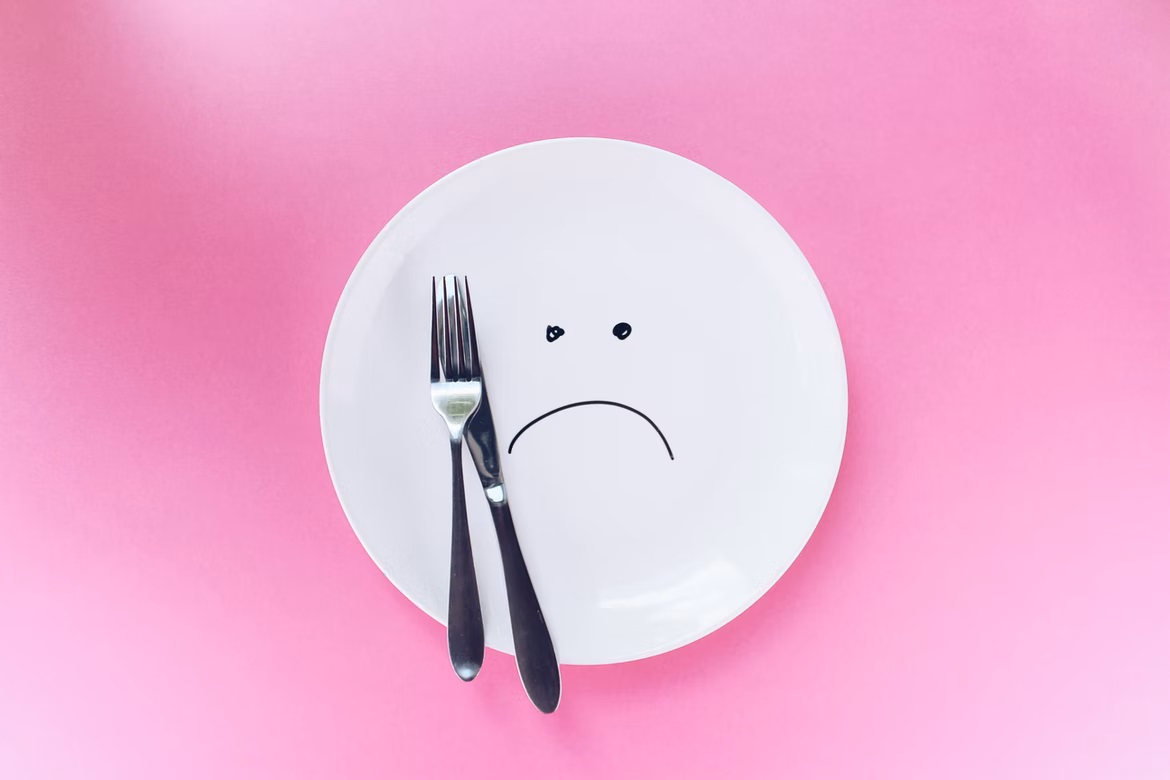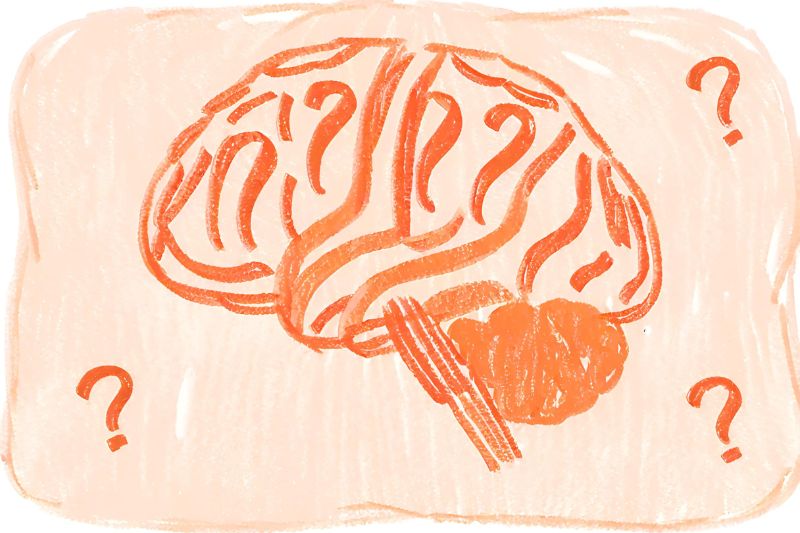How Anxiety Affects Your Appetite
ManageMinds explains what anxiety does to your appetite and provides useful advice on how to manage these symptoms and prevent them from causing long term damage.

Anxiety can be an all-encompassing condition. While we often focus on the damaging mental aspects of anxiety, it also impacts both physical health and behaviour. This becomes particularly problematic when it begins to interfere with essential daily activities, like eating. In fact, it is fairly common for anxiety to cause changes to an individual’s appetite. How this manifests from person to person, however, is very different. In this article, ManageMinds explains what anxiety does to your appetite and provides useful advice on how to manage these symptoms and prevent them from causing long term damage.
In this article, ManageMinds explains what anxiety does to your appetite and provides useful advice on how to manage these symptoms and prevent them from causing long term damage.
What is anxiety?
Before we jump into how it might affect your appetite, let’s quickly cover what we mean when we talk about anxiety. When diagnosed as a condition, the term anxiety actually refers to a range of disorders that cause individuals to experience intense feelings of fear, uncertainty and dread.
Anxiety can produce many different symptoms, but some of the main ones are:
- Restlessness and irritability
- Increased heart rate
- Digestive problems
- Feeling tense and nervous
- Sense of impending doom
- Sweating
- Difficulty concentrating
- Feeling weak and tired
Everyone will feel anxious at certain times in their life. Sometimes it can even be a positive thing! However, when these symptoms last for a prolonged period of time and affect your daily wellbeing, you may be suffering from anxiety. It can develop in response to a particularly stressful period in your life, or may emerge with no apparent cause.
Whether you’ve been diagnosed with anxiety, or you’re experiencing these symptoms for the first time, it can have a major impact on your appetite.
The second brain

For those not acquainted with anxiety, it can seem quite the leap to directly link a mental health condition to appetite changes. However, what’s happening in our head has such a strong connection to our digestive system that many consider the stomach to be the second brain.
Think about it. When you’re excited or nervous, you may experience butterflies in your tummy. Receiving very upsetting news might cause your stomach to drop. When you’re struggling to make a decision about something, you are told to go with your gut instinct. And so on and so forth. You might be surprised to learn that behind these phrases there is solid scientific reasoning. What’s happening in our head can heavily influence the way our digestive system behaves.
In school you were probably taught about the central nervous system (CNS). Consisting of the brain and spinal cord, it is the body’s processing centre, responsible for vital functions like movement, thinking and speech. Another important nervous system that is not as well known is located in the gut. The enteric nervous system (ENS) runs along the entire digestive tract. What’s more, it relies on many of the same neurons and neurotransmitters that are present in the CNS. Because of this, some scientists consider the ENS to be the second brain, and it is thought to play an important role in our mental health.
How anxiety affects eating habits
One of the interesting things about the relationship between anxiety and appetite is that it can impact people in very different ways. And by different, we mean completely the opposite—two common behavioural symptoms of anxiety are undereating and overeating.
This is a complex condition, so there are many reasons why people fall into these behaviours when anxious. We cover some of the main ones below.
Anxiety and appetite: undereating
Fight or flight
When you have anxiety, it sometimes feels like you are in a constant state of fight or flight. This is a result of your body releasing the same stress hormones that it produces in response to perceived danger. While things like heart rate and breathing speed up, processes like digestion and hunger signals are slowed down or paused. The logic behind this is that your brain is freeing up the body to focus all of its attention on the threat. This is ideal if you’re out on the plains and are attacked by a wildebeest, but not so great if you’re suffering from anxiety and there is no actual stressor in sight.
The result is that, even without the presence of a genuine threat, your appetite is repressed and high cortisol levels make your stomach feel too sensitive for food consumption.
Lack of energy
Constantly being on edge is very draining. It also makes it quite difficult to get a good night’s sleep. This combination means that people with anxiety can feel weak and lethargic. In this state, the idea of prepping, preparing and tidying up after a meal is not exactly appealing. As a result, eating feels like a chore that is way down at the bottom of your priority list.
Other people may be so busy focusing what little energy they have on sources of stress that they simply forget to eat. As anxiety can cause a number of physical and mental symptoms to appear, it’s easy for sufferers to get too distracted to perform basic necessities like fuelling their body.
Control
When in the throes of an anxious episode, individuals often feel like they have lost control over their thoughts and feelings. This is a very disorienting and unpleasant sensation. In order to combat it, some will turn to one of the few areas where they can regain a sense of control: food intake. In such cases, undereating is not caused by a loss of appetite, but rather a conscious decision to restrict eating, regardless of hunger levels.
When such a person then feels hungry or loses weight, they find comfort in the fact that the cause is clear and they can decide when to turn it on or off. The problem is, this is very damaging behaviour that can develop into an eating disorder. Furthermore, by starving your body, you are actually depriving it of its ability to manage stress levels.
Anxiety and appetite: overeating

Comfort eating
Emotional eating is a common response to a wide range of mental health conditions. Similar to drugs, food is a substance that can provide us with instant gratification. Consuming things like meat, dairy and chocolate can raise our dopamine levels. Dopamine is a feel-good chemical, so such behaviours can actually become addictive, which leads to overeating. This is more likely to happen during periods of emotional turmoil, as food may be used as a crutch.
If you’ve had a tough day, it’s also very easy to get into the habit of rewarding yourself with food. This is fine in the short term, but can become a problem if it is done repeatedly with things like junk food.
Lack of energy
When sapped of energy, it’s normal to reach for quick fixes. Unfortunately, when it comes to eating, this often means unhealthy choices are made. Just as those who undereat may put off eating because they don’t have the energy to cook and clean, others may solve this by relying on easy options like takeaway and fast food. As we mentioned above, these foods can be addictive, so frequently eating them when you’re suffering from anxiety may lead to a vicious cycle of stress and overeating.
Tips to improve your eating patterns when you have anxiety
Anxiety really takes a toll on your body. Whether you’re overeating or undereating, one of the best things you can do to improve your appetite (and overall health) is get enough sleep. We understand that this is certainly easier said than done when you have anxiety. To improve your chances of getting enough shuteye, try increasing movement during the day, avoiding screens after dark and taking a warm bath before bed.
It’s also important to note that certain medications can alter your appetite. If you’re taking meds and struggling to eat the right amount of food, it might be worth consulting your doctor to ensure that what you’ve been prescribed is not responsible for the change in your appetite.
And now for some tips specific to the way anxiety is affecting your appetite…
Undereating
- Find food that you can tolerate (bland food like plain rice or oats are a good place to start) and keep your cupboards well-stocked with them.
- On days where you have the energy, do some meal prep so that you have easy access to simple options on days where you can’t bring yourself to cook.
- Draw up an eating schedule and stick to it. Over time, your body will start to provide hunger cues when it knows a meal is due.
- Increase the amount of exercise you do. Even light walking will increase appetite and reduce stress—it’s a double win!
- If you can’t stomach solid food, make nutrient dense smoothies so that you can consume the calories you need in liquid form.
- Think of eating as the act of self love that it is. Your body does so much for you—it deserves to be fuelled.
Overeating
- Make a conscious effort to really chew your food and eat slowly. This will make digestion easier and force you to eat with consideration.
- If consuming large volumes of food has become a comfort, switch out fatty, salty foods for healthier options like veggies or popcorn. When the urge to binge takes hold, reach for these.
- Try not to put foods into strict categories of ‘good’ and ‘bad’. You deserve to eat all kinds of delicious things. Cutting out or limiting certain food types is unrealistic and any perceived “slip ups” may lead to another binge cycle.
- Find other ways to treat yourself that don’t revolve around food. This could be buying a new item of clothing, taking a bubble bath, or playing a video game.
- If you feel yourself falling back into unhealthy habits, talk to a friend or family member about what’s really on your mind.
- Take baby steps and don’t beat yourself up if you continue to overeat. It’s not about achieving perfection, you’re just aiming for small improvements over time.
Getting help for your anxiety
If anxiety is having a negative impact on your appetite, the most effective treatment route is to combat the anxiety itself. That’s where we come in. ManageMinds can match you with an experienced therapist who will discuss your goals and provide you with the tools you need to achieve them. Take a look at our range of therapy services to get started.
Post Date:
Author: Isobel Robb
Explore More Articles
3 Mental Health Myths Your Therapist Is Sick of Hearing
It's great that more people are talking about mental health, but not everything you hear is necessarily true. Don't fall for these 3 mental health myths!
Feeling Worried? Challenge Anxious Thoughts with These Simple Questions
Stuck in a spiral of anxious thoughts? Use these 3 simple questions to challenge negative thinking and adopt a healthier mindset.
ManageMinds Explains... Narcissists
Even wondered if you or someone you know may be a narcissist? In this guide we cover what narcissistic personality disorder is, as well as the signs you need to watch out for.


